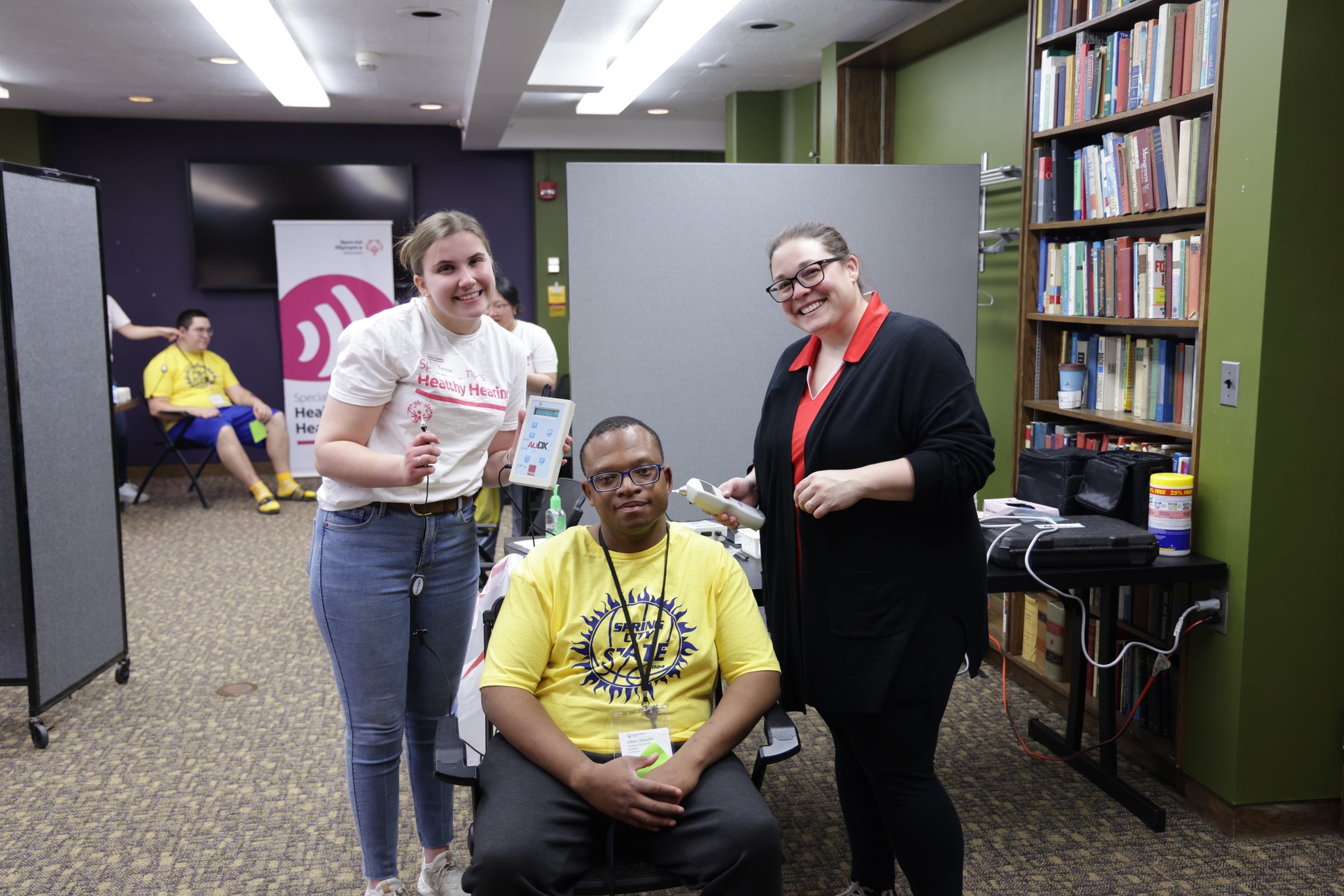A University of Wisconsin-Stevens Point professor is helping to pave the way for all to receive the hearing care they deserve.
As the Clinical Director for the Special Olympics Wisconsin Healthy Hearing Program, Rachel Craig, an associate professor of audiology, has trained and coordinated numerous UW-Stevens Point graduate student volunteers to provide hundreds of free hearing screenings and follow-up recommendations to the athletes competing in Special Olympics.
Her work earned her the 2024 Ethel and Ward Cable Faculty Heroes Award in the College of Professional Studies.
Craig began working in the Healthy Hearing program through a volunteer opportunity as a student in the Doctor of Audiology program at UWSP. Staying involved for many years post-graduation, Craig eventually became the clinical director in 2019.
“It’s just a population I am extremely passionate about,” she said. “I wanted to be involved as much as I can and make the changes I can within audiology and its training.”
Her eagerness to participate and make a difference has led her to also serving on the Healthy Hearing Global Faculty Advisory Panel, a group of people from around the world working on an inclusive health initiative to create standards that will mandate students be taught how to work with individuals with intellectual disabilities. In addition, the panel is working on creating better protocols for follow-up with athletes.
“It’s great, they come to the games, and get all of these awesome tests done,” said Craig, “However, once we refer them, that is kind of where it stops. I would lay awake at night and wonder if they are going to it taken care of.”
 Craig trains and coordinates student volunteers to conduct free hearing screening for the Special Olympic athletes.
Craig trains and coordinates student volunteers to conduct free hearing screening for the Special Olympic athletes.
While the panel is working towards improved follow-up protocols, Craig has taken on the role to call and coordinate care with many athletes after the games.
Craig and the student volunteers often get to see the full cycle of care, with athletes from Central Wisconsin being able to follow up at UWSP’s Speech, Language and Hearing Clinic to get the help they need.
“We see some of the athletes on campus here, which is really awesome because the students get even more experience,” said Craig.
She noted the importance of her role in Special Olympics allows her students to have access to interprofessional education by working with medical students and the opportunity to service a population they otherwise may never be exposed to.
“You are not going to get that experience anywhere else besides getting out and getting involved,” said Craig.
In addition to the benefits of student volunteers’ professional development, the impact on the athletes is a main driving factor that keeps her passionate about her work.
“I do this because it is important to me, but I also genuinely have so much fun,” said Craig.
Without these screenings, most athletes’ hearing problems go undetected, unserved or undertreated. “Individuals with intellectual disabilities are more prone to ear issues, so we see a higher rate of middle ear issues and hearing loss in that population,” she said.
She also credited her passion to one of her mentors Maggie Watson, a retired UWSP professor, noting, “She made me realize that I can do things I put my mind to. Being able to think outside of myself and the university on a bigger scale really stemmed from her believing in me.”
“Her strong work ethic and passion for helping others makes her a deserving hero,” said Watson. “She is held in high regard by me, students, clients and colleagues. It has been a privilege to have been a part of her professional journey.”
Craig has made a lasting impact for countless athletes in their health, communication ability, social interactions and quality of life.
She said some of the most important things we can do are to protect your ears and get out and volunteer.
“Whether it’s with Special Olympics or other organizations, it’s a win-win situation for everyone.”
